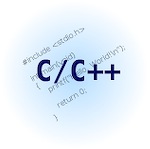The Importance of Revisiting Code
Thursday, January 31st, 2008
While I know it's not possible in a lot of cases, it really is nice to be able to go back and revisit code you've written several months before. You can see a lot of things that seemed obvious at the time - and now they aren't so obvious, which means you might need to recode them to make them easier to understand, or at least add docs in the code to make it easier to understand why the code looks the way it looks.
Case in point: today I found a minor bug in the pricing logic of the server. When a quote and a trade come in with the exact same timestamp, the logic should have been that the trade 'wins'. What was happening was the quote was winning. Seems like a trivial change - somewhere a 'greater-than' needed to be changed to a 'greater-than-or-equal-to' and that should have been it. Oh... if only it were that easy.
The pricing logic in the server is really, unfortunately, quite complex. We need to look not only to see if the quote is good - meaning does it have the requisite parts, but also does it look right? Meaning, is the bid/ask spread too far to be considered a good quote? We have tons of rules like this in the pricing engine part of the server. So it's not going to be one place. But it was certainly more complicated than it needed to be. So I dug into it.
I was able to simplify it a lot by taking the price and the instrument the price was for as two different logical entities. First, see if the price itself had a 'good trade', and a 'good quote' - regardless of the instrument it might be applied to. Then look at the instrument and see if it was supposed to be quotable, and if so, was the quote more recent that the trade? If not, then don't use the quote.
If I got no quote, then see if I got a decent trade for this instrument. The logic sounds easy, and is... now... but the original code combined too many things at once - trying to see if the price/instrument combo was good. This meant that a lot of checks were duplicated for different instrument types. That's just bad.
So even though it looked logically fine to me 4 months ago, it really needed to be re-written to make it even easier to understand. Now, when we run into issues it'll be a lot easier to follow the logic of the trade/quote part of the pricing section. Almost everything can be improved upon.





